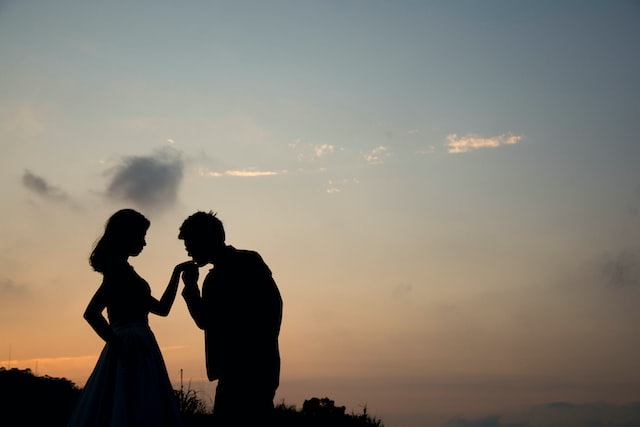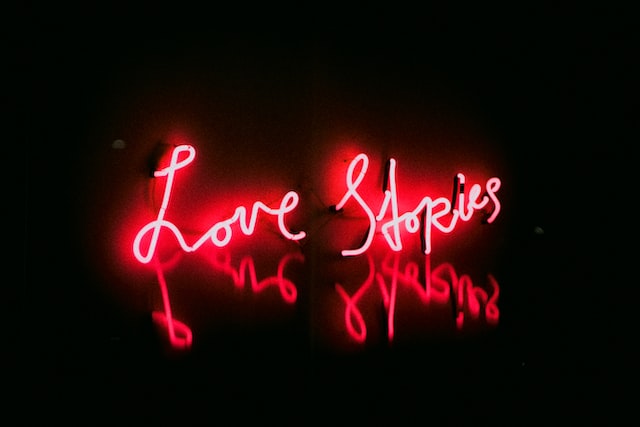Romance and fairytales are for suckers—and that included me.
My taste in books is fairly spread out across genres. I love everything from autobiographies, to contemporary fiction, to science-fiction and fantasy. But one genre I typically skip over is romance. You know the one: People We Meet On Vacation, Spanish Love Deception, etc. My favorite love story is a film of two people who fall in love only to realize they are going in opposite directions. It doesn’t even have a conventionally happy ending.
If you’re a millennial like me, you grew up on happy endings peddled by Disney: Sleeping Beauty, Aladdin, Little Mermaid, Cinderella, Snow White… all stories whose climaxes hinged on the heroics of a Prince Charming who isn’t present for most of the story. I now realize there’s a reason their names aren’t even in the titles. The repercussions of growing up with these narratives became apparent as I aged into heterosexual womanhood: Prince Charmings are in fact, fictional.
Yet somehow, romance novels continue to tell us otherwise. I think that does both women and men a great disservice. Here’s why.
Women are encouraged to look for men who aren’t based on real men.
In a world where the internet is full of bad and unsolicited dating advice—like writing people off as canceled, toxic, or red flags at the first sign of conflict—it’s no wonder that finding and developing a healthy relationship has become impossible, practically a figment of the adult imagination. I think about what my friends have grappled with in the throes of modern dating, and the conversations inevitably settle on finding their Darcy or other fictional male equivalent possessing health, wealth, commitment, and emotional maturity. That seems to be the problem.
I’m no professional dating coach, therapist, or psychologist. But perhaps many of us women are asking for something that just doesn’t exist. Maybe that’s why the entertainment industry, especially K-pop, has amassed vast popularity; women will practically pay to be close to perfection, even if it’s a projection. Maybe it’s why so many of us find solace in romance novels. It’s just easier to hope for better than to face reality. It’s easier to write out the man of your dreams than to go out there and do the work of (hopefully) finding him.
Read: Three Takeaways from Shani Silver’s A Single Revolution.
The female gaze writes men into a narrow perspective.
It makes sense. If the romance genre is dominated by female authors, then it is logical that male characters will be written from the female gaze. But what exactly is the female gaze? Who are men written by women?
The female gaze has produced the men we love in romance novels. They are effeminized. They are vulnerable, emotional, tender-hearted, patient, and kind. These are all great qualities in a man, but they shouldn’t be the only qualities we seek in one. Just as no man is strictly emotionally stunted and aggressive (I hope), no man is strictly emotionally mature and gentle. As Morgan Clarke argues, humans are multidimensional. Writing men this way is no different from writing men as representatives of toxic masculinity. Internalizing either perspective is narrow-minded, perhaps even cruel, toward men. All we’re doing is setting ourselves up for a lot of disappointment we aren’t ready to handle.

Romance novels plant unrealistic expectations for romantic partnerships.
By definition, tropes are regularly occurring and thematic. They are patterns. They are predictable. I even have a favorite: enemies to lovers. It’s popular in fantasy novels. Unfortunately, real, human relationships are complex and messy. Unpredictable. Happy endings don’t fall into your lap just because you meet your perfect match, your Darcy, Bingley, or Aaron Blackford.
You may think it’s silly that people measure partners based on fictional characters, but doing so underestimates the power of media and storytelling. Media is an influential tool for socializing people into ideologies and cultures. Think about the way social media has polarized friends, families, and political parties, or how Russian media has convinced some people that the Ukrainian war is a noble cause, not a violent display of power and vanity. There’s a reason romance novels continue to sell.
Chance encounters may lead you to meet your person, but happy endings happen by choice. A deliberate decision between two people.
Let’s make romantic fiction a little more believable.
Writers write what they know. The best writing is a little bit personal, vulnerable, and expository—a glimpse into the highly complex weave of an author’s life experiences. That’s exactly why I wish more men would write romance novels. I want to know what men feel about women. I acknowledge my limitations in saying that, as I’ve read exactly two Nicholas Sparks books in my entire life.
Still, I want to see slightly more realistic men represented in fiction. I want to see their flaws and their redeeming qualities. I want to see their fears and how they claw their way out of them to commit to the women they love. If more men wrote romance books (without hiding under a female pen name thanks to patriarchal stigma), I think more women would understand how men process emotions and relationships, too.
Fortunately, I’m not alone in the sentiment. Jason Rogers of Esquire writes:
“Romance novels open doors to important conversations many men aren’t having about partnership, pleasure, and consent. In a culture that teaches men to conceal or suppress their emotions, romance novels model a more emotionally available form of masculinity—one where a willingness to be vulnerable is the key to intimacy with a partner.”
If you enjoyed this post, I recommend checking out my Three Takeaways on a book about dating and singlehood, A Single Revolution.

